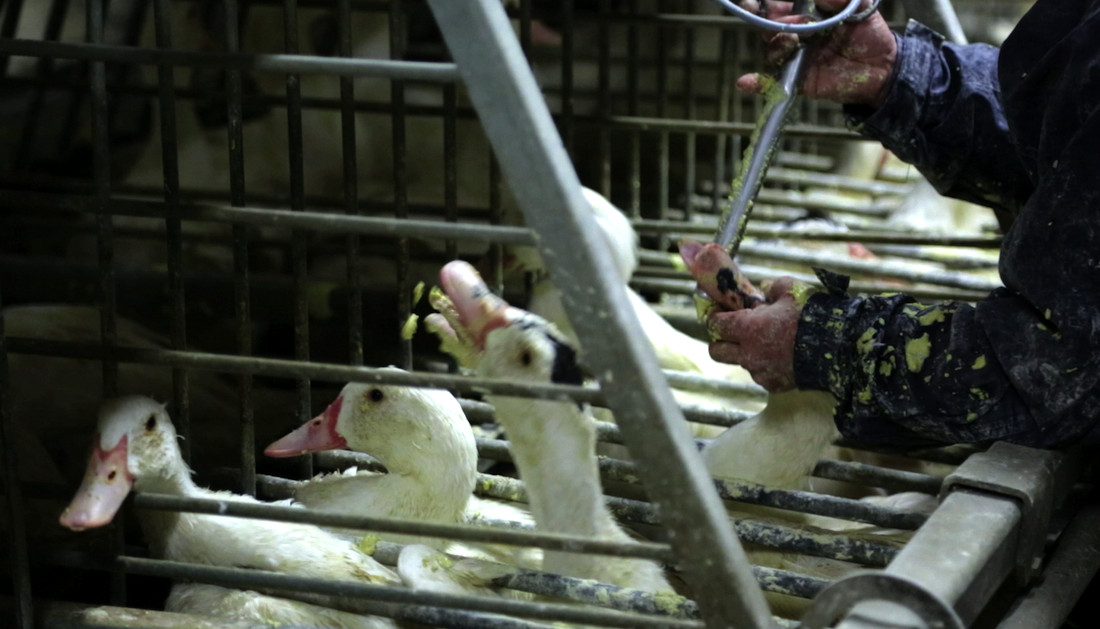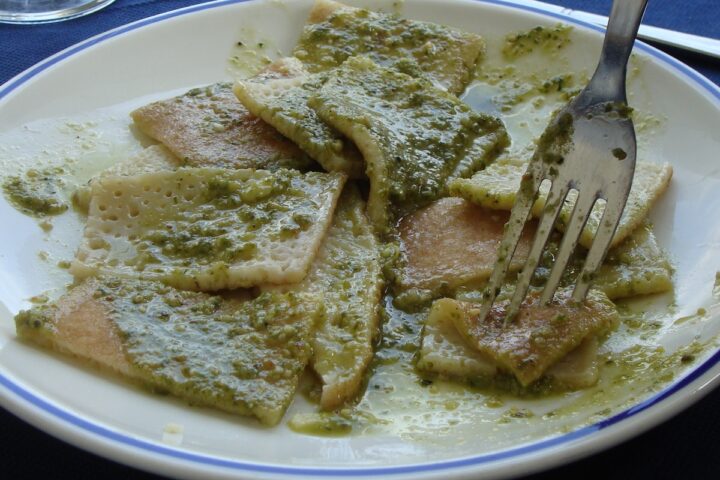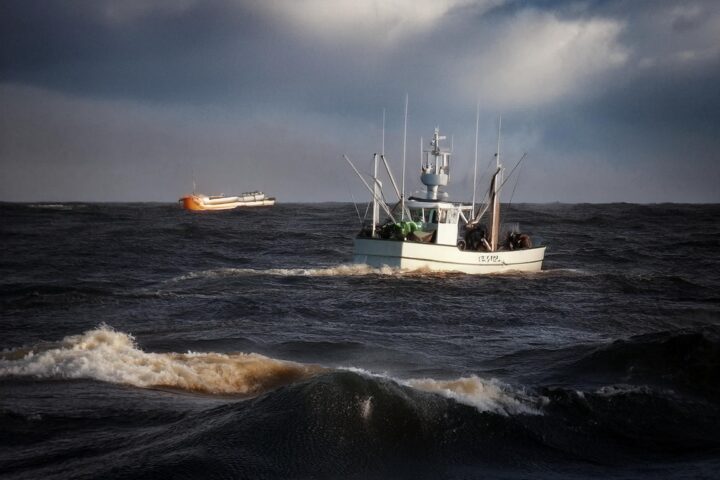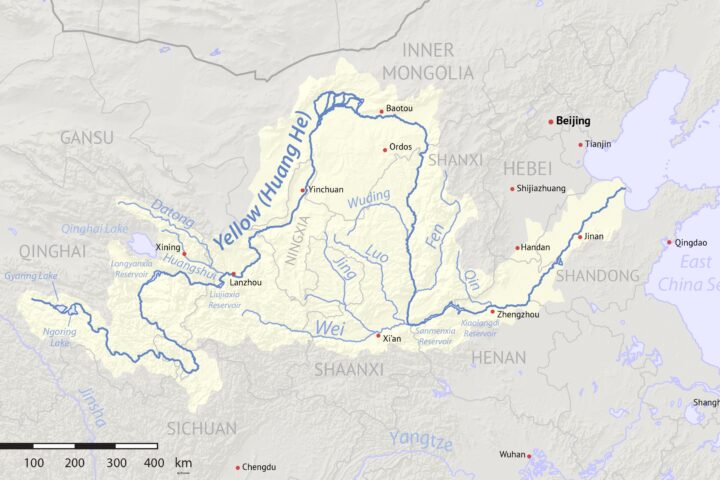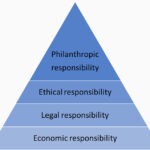Source: Wikimedia_Collective_cage_used_in_the_foie_gras_industry
For decades, foie gras, as a French delicacy with a rich, buttery texture and intense flavor, has posed questions that render it a result of controversy. Produced by force-feeding in enlarging the liver of a duck or goose, this culinary treasure has been one of the hot debates on animal welfare, ethical consumption, and cultural heritage.
Understanding Foie Gras Production
One process in the making of foie gras is the gavage or force-feeding of ducks and geese with corn or grain down a metal tube inserted into their throats; this way, the liver grows abnormally large and produces the desired fatty feature.
While friends of foie gras argue that the birds do not suffer unnecessarily, animal welfare groups criticize the ethics of the practice more and more. Some of them argue that garbage is unnatural, which causes considerable distress for the birds. As evidence, they mention respiratory problems, liver damage, and other disease-related problems with garbage.
History of Foie Gras
The history of foie gras stretches back several centuries, and some might trace it even further-according to more remote evidence, back into ancient Egypt, where force-feeding birds, or at least their livers, has apparently been done. Anyway, it was in France that foie gras became an important culinary delicacy.
Its popularity continued to gain momentum throughout the ages, and by the 18th century it had become a favorite staple of French cuisine. Foie gras has been part of the French culinary tradition since time immemorial, passed down through generations, and many chefs and food enthusiasts consider it as a culinary masterpiece.
Cultural Significance of Foie Gras
Foie gras is extremely culturally significant in French cuisine. It usually finds its way to the dining table as a pâté or terrine served with crusty bread or toasted brioche. Many French consider foie gras a benchmark of their culinary heritage and a source of national pride.
Beyond France, the delicacy is enjoyed in much of the world. It appears on the menus of fine dining restaurants and is considered a treat in many countries, such as the United States, Japan, and China.
Ethical Debate Over Foie Gras
The ethics debate about foie gras has been intense over the past few years, and animal welfare organizations have been very prominent in leading the eradication calls because of the method of force-feeding. Producers, however, realize that the production of foie gras is inherently cruel and inhumane, and they call for an outright ban on the sale and consumption of foie gras.
On the pro-foie gras side of the debate, these defend the practice saying that birds are treated humanely and that the product is something that should be brought down from heaven, for sure. Furthermore, the supporters of foie gras argue that the production of the delicacy helps bring much-needed revenue to local economies and supports traditional farming practices.
Not surprisingly, with the increased awareness about the welfare of animals, many chefs and food manufacturers have come up with alternative substitutes for this delicacy. Amongst them, there are well-known plant-based alternatives that provide consumers with the flavor and texture of foie gras without the ethical issue.
These substitutes for foie gras are often a mixture of mushroom and nut and plant-based fats. Naturally, they can’t replace real foie gras in the context of flavor and mouthfeel, but they are definitely non-cruelty and environmentally friendly alternatives for those who like it.
The Future of Foie Gras
The future of foie gras is not clear. Continuing ethical debates will probably lead to banning this method of force-feeding in many countries, but its importance in culture and habitual appeal make one believe that it will be one of the most highly demanded delicacies for long years.
So, the decision to eat or not eat foie gras is strictly a personal decision. Those willing to consume it would then have to look for those producers who ensure humane ways of raising their animals. Others would be keen on settling on options based on plants and avoid the liver of the flossy duck altogether.
In conclusion, foie gras is one of the most debated delicacies, having been a topic for debate for decades. Undeniably, its rich flavor and cultural significance command an undeniable status. At the same time, ethical considerations in its production have raised serious concerns in many quarters. As the debate lingers, some of the considerations with respect to the welfare of animals and suitable sustainable alternatives become of absolute importance.
Global Foie Gras Market Overview and Impact
There has been an unprecedented growth of the global foie gras market over the years. The increasing demand from consumers for such luxurious food products is the reason. Ethical criticism of the method of production has resulted in calls for boycotts and bans, but the delicacy remains appealing in many countries.
Major Drivers in the Foie Gras Market
There have been a number of factors that have contributed to the growth of the foie gras market:
- Rising disposable incomes: When more people achieve higher income levels, then there is a greater probability that they spend on luxury food items like foie gras.
- Urbanization: Urbanization and the preference of people for urban residence led to an increased demand for convenience foods which comprise foie gras-based products like pâté and terrine.
- Globalization and cultural exchange: The advancement in cross-boundary contacts has further increased the love of different cuisines, including French delicacies, foie gras.
Major Foie Gras Producers and Consumers
France is still the largest producer of this delicacy, holding most shares in the world market. Other major producers of foie gras include Spain, Hungary, and China.
The United States is another big consumer of this delicacy due to a large number of restaurants as well as gourmet food stores gaining it on their menus. Other large markets for this gourmandier include Japan, Germany, and the UK.
The Ethical Concerns Associated with Foie Gras and the Market
Ethical concerns related to the production process of foie gras have already affected the market. Animal welfare associations have conducted various campaigns to raise awareness on the cruel nature of the force-feeding process and have advocated for a ban on sales and consumption of foie gras.
Because of these objections, various countries have taken legislative action against the production of such food. California, for example, curtailed the sale of its force-fed products, as did Illinois.
Despite such challenges, the market for foie gras continues to grow in the wake of willing consumers that ignore ethical challenges. Efforts by some producers have also placed measures in efforts to raise the standards of production. Some are now hand-fed and others are fed naturally.
The Future of Foie Gras: A Balancing Act
The future of foie gras remains uncertain. Ethical issues when producing this delicacy are very probably going to be an ongoing debate, but many parts of the world are indeed enamored with the delicacy.
For a long-term future of the foie gras market, it is very important to establish such a balance between consumer demand and respecting animals’ welfare. Better production methods, plant-based alternatives, and enlightening consumers about the ethical dimensions of their food will contribute to ensuring this balance.
The future of foie gras belongs to the consumers and producers who, in choosing between liberty or equality, will decide its taste. Policymakers must provide an effective balance between personal liberty and social well-being, along with deciding what is in the best interest of society.
Sources:
- https://en.wikipedia.org/wiki/Foie_gras_controversy#:~:text=The%20production%20of%20foie%20gras,they%20would%20voluntarily%20eat%20domestically.
- https://www.quora.com/How-is-foie-gras-made-and-why-is-it-so-controversial
- https://www.peta.org/issues/animals-used-for-food/factory-farming/ducks-geese/foie-gras/
- https://docstudio.org/2021/12/17/the-controversy-of-foie-gras/

